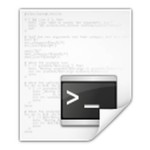Tag Archives: unix
Shell Script: Calculate Tomorrow’s Date on Unix
A couple of readers, upon reading this article to calculate yesterday’s date in a shell script, have requested for a similar script that can be used to calculate tomorrow’s date.
How to Intrepret Shadow Passwords in UNIX
In modern UNIX and Linux systems, user passwords are encrypted and stored in the /etc/shadow file. On BSD systems, the passwords are kept in the /etc/master.passwd file. The encrypted password field in the file contains more than just the encrypted password, it contains additional information.
How to Login to an Expired root Account in Solaris
If your organisation has password aging policy set for your UNIX servers, there is a possibility that the root account may also get locked out due to the existence of an expiry date set in the /etc/shadow file. Once the root account is locked, all jobs (cron, etc) that require root privileges may start to fail. To unlock the root account on a SUN SPARC machine, you will need to:
Recursive FTP from the Command Line
The default command line ftp client in most UNIX distributions do not support recursive downloads, even though recursive downloads is a basic feature in most GUI based ftp clients. But if you do not have access to the X-Windows or GUI, there are alternative ways to achieve the same result from the command line.
UNIX Terminal Session Management
Have you ever encountered the dreaded “Connection closed by foreign host” message when you were logged into a remote server via SSH and you were in the middle of some important task? You have most probably just lost your session and you will have to start your task all over again. Well, you can prevent this from happening by using the screen command available in most UNIX and Linux distributions.
Switch Between 32-bit and 64-bit Kernel in Solaris
Solaris, by default, loads a 64-bit kernel during boot up, if the hardware supports it.
If, for whatever reason, you need to load Solaris in 32-bit mode, the following commands can be used to switch between the 32-bit and 64-bit kernels.
Enable Ubuntu root Account
Ubuntu Linux distribution, by default, disables the root account. To run a command with root privileges, sudo has to be used before the command.
Command Line Calendar
How often have you wanted to take a quick glance of the calendar in your desktop? You may need to click a couple of dozen of times on your desktop if the period your are interested in is more than a decade back.



